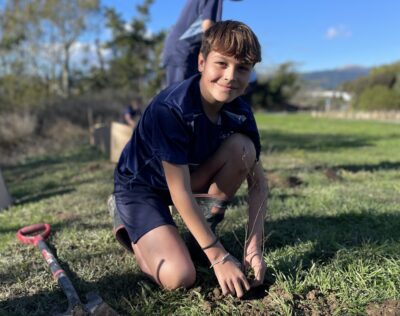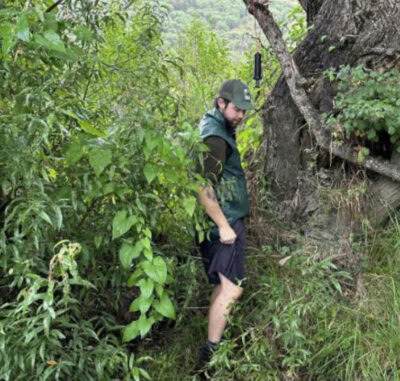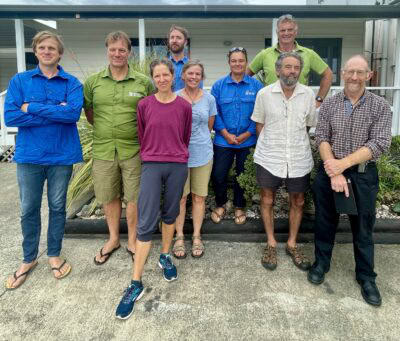The official announcement of the MPI Sustainable Land Use funding for the Motueka Catchment Collective (MCC) took place at Shedwood Hall, Tapawera on the 2nd June.
Over 100 people packed into Tapawera’s Shedwood Hall to celebrate new funding for the Motueka Catchment Collective. Minister of Agriculture, Damien O’Connor, came to announce $870,000 of funding towards capacity and capability building at the event, attended by catchment residents, industry representatives, iwi and Council.
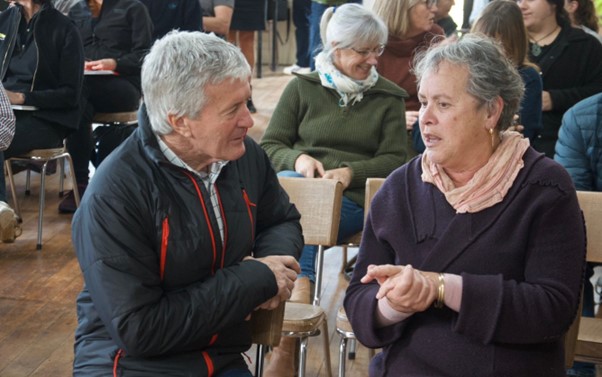
Integrated Catchment Management
“What we do on the land, affects Tasman Bay /Te Tai-o-Aorere,” said Andrew Fenemor, the Integrated Catchment Management scientist, whose research in the project between 2000-11 supported the application.
“We need to take a long-term view of the catchment, with a mountains-to-sea approach, a view shared by iwi”
Andrew Fenemor
The Motueka Catchment Collective has been in gestation for several years, driven by landowners and manawhenua iwi, who want to see the river and connected environments stay healthy and vibrant.
A Coordinated Approach
The collective has appointed a catchment coordinator. Her role is to connect with as many stakeholders as possible, and support the steering group to achieve their vision.
Following an opening karakia by iwi representatives, the Minister gave his mihi – a way to offer his connection to the awa and demonstrate pride in the life-sustaining water and food it enables. “It will be the collaborative approach that will drive how the new reforms are enacted,” said Councillor Kit Maling. Tasman District Council, who manage the waterway, will also oversee implementation of Te Mana o Te Wai and legislation around Freshwater Farm Plans.
Volunteers Take Centre Stage
While acknowledging the Government agencies who are funding the programme, the real heroes are the volunteers, who have given so much energy to bring the Motueka Catchment Collective to this point. Debbie Win, a Dovedale farmer and Roger May, forest researcher, spoke on behalf of MCC, shining a light on the thousands of volunteer hours to date that have contributed to the groups’ formation. It has been no easy task consulting with communities, distilling the information into priorities, deciding on an organisational structure and putting together the funding application.
Thematic Groups get the mahi done
After the formalities, the Collective enjoyed hot soup, sandwiches and mini-pies, while discussing how to work towards shared aims. The catchment maps on the walls of Shedwood Hall provided attendees with information around geology, land use and sub-catchments – useful for the Thematic Group workshop tables.
For each of the areas of Biodiversity and Restoration, Pest Management, Forestry, Freshwater Monitoring, River Management and Recreation and Access, groups took to lively discussions around these key themes.
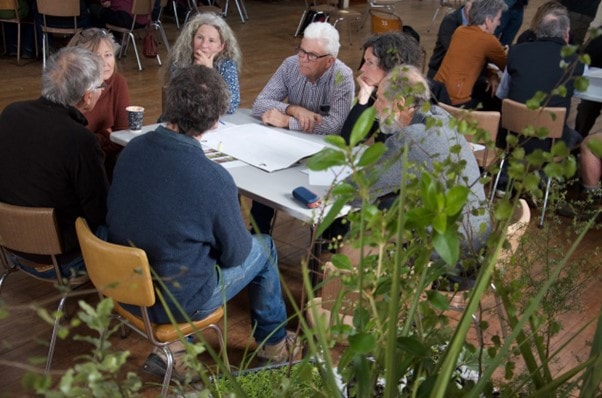
The Biodiversity and Recreation group have already held workshops on seed collection and planting, helped community nurseries grow plants, and engaged with local schools. Having fun and engaging communities around riparian planting are ways to help us all feel connected to the awa. But once these areas are planted, it is important to ensure the pests are trapped and invasive weeds are controlled. Ensuring access to favourite swimming holes, picnic sites and fishing spots and maintaining their beauty, will also help build appreciation.
While TDC will continue to monitor sites on the main river stem and tributaries, sediment from the erodible Separation Point granite continues to enter the river and bay. How we work together to develop improved practices in forestry plantations and harvesting will be a challenge for the Forestry Working Group. Resonance from all the tables clearly showed that regardless of interest areas, we are all after the same thing – ensuring we have freshwater for tomorrow.
The Motueka Catchment Collective will soon send out a survey to all valley residents asking for input into priorities for the catchment. The time is right to look to our sub-catchment communities to take charge of our waterways and get together from time to time and have fun. Together, we can connect with the awa and each other.
“Community engagement is the overlay for everything the Catchment Collective is doing.”
Roger May

